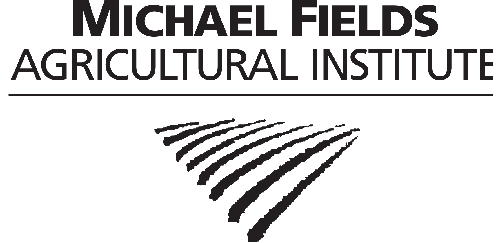Ryan Martin Named as Michael Fields Agricultural Institute's New Executive Director
Michael Fields Agricultural Institute’s (MFAI) Board of Directors announced today that Mr. Ryan Martin has been selected as Executive Director. Martin will begin his tenure on November 1, 2023.
Chosen after a nationwide search, Martin will follow outgoing Executive Director Perry Brown, who retires at the end of the month after seven years in the role.
Most recently, Martin served as the executive director of the Viles Arboretum in Augusta, Maine. Martin brings a diverse career in agricultural education and nonprofit administration.
Previously, Martin administered an award-winning farm operation alongside students employing regenerative agricultural practices while serving as an adjunct crop systems professor at a community college. He has a master’s degree in sustainable food systems from Green Mountain College.
“I am humbled and honored by the opportunity to join MFAI as the Executive Director,” said Martin. “I look forward to building on MFAIs rich history and commitment to just and equitable food and farming systems.”
Founded in 1984, MFAI is guided by a vision of agriculture that prioritizes people and promotes human and ecosystem health, food sovereignty, and justice.
MFAI Board Chairman Dr. Gregg Sanford said, “After a rigorous four-month process, our board, with input from staff, selected Mr. Martin to assume this important role. His experience, enthusiasm, and commitment to sustainable food systems makes him the ideal person to lead Michael Fields into the future.”
Michael Fields Agricultural Institute is a 501(c)(3) non-profit organization addressing the challenges of soil fertility, water quality, climate resilience, racial equity, food security, and farm success through research, policy, and education. MFAI is based in East Troy, WI, and serves diverse farmers and communities in the Upper Midwest and beyond. We believe that responsible food and farming systems can help solve some of the most pressing environmental and social problems of our time. For more information, visit www.michaelfields.org.

